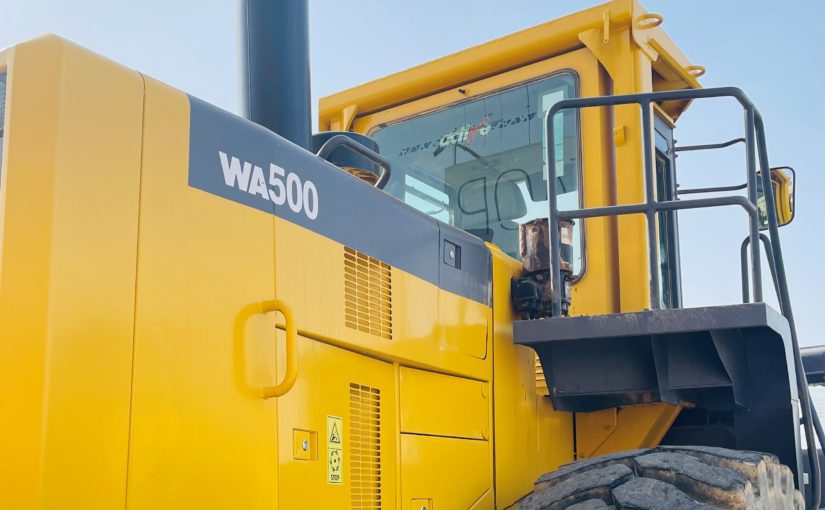When we think of heavy machinery, we imagine an imposing power capable of moving earth, gravel, and stone with ease. But behind this vision, there is much more: achieving a longer lifespan with lower maintenance costs. In recent years, heavy machinery has evolved significantly to meet these demands. In this blog, we will explore the heart of these machines, the transmission. With a focus on wheel loaders, we will break down their key components, the fluids that keep them running, and their types.
Emphasizing Their Importance
Transmissions are the backbone of machines, allowing for the efficient transfer of engine power to the wheels or tracks. In a wheel loader, the transmission plays an essential role in adjusting speed and torque (the rotational force a motor can generate to perform work) according to operational needs.
And in the case of a wheel loader… What aspects do we highlight?
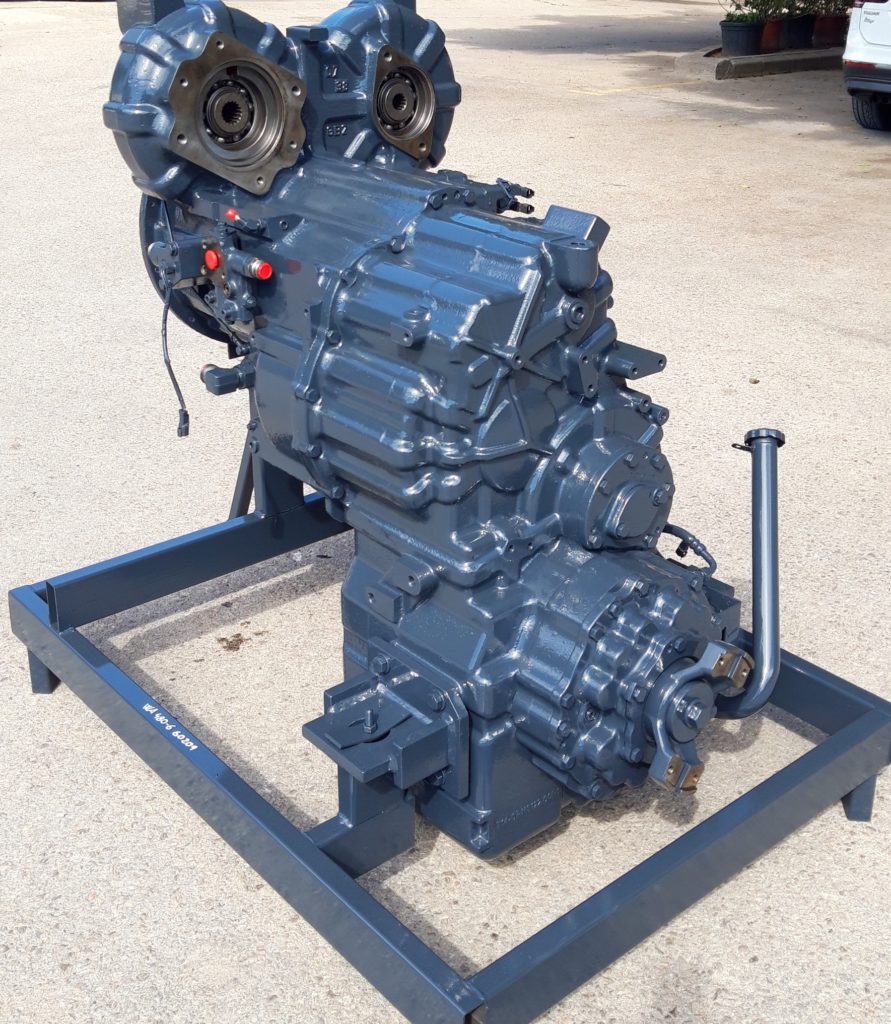
Essential Components of a Loader’s Transmission
Torque Converter
The torque converter is the first piece in a wheel loader‘s transmission. It functions as a hydraulic coupling that allows for the smooth and gradual transmission of power generated by the engine to the transmission. Its design enables jerk-free starts and efficient energy transfer. In situations of heavy loading, the torque converter acts as a torque multiplier, providing greater force to overcome obstacles and challenging terrains.
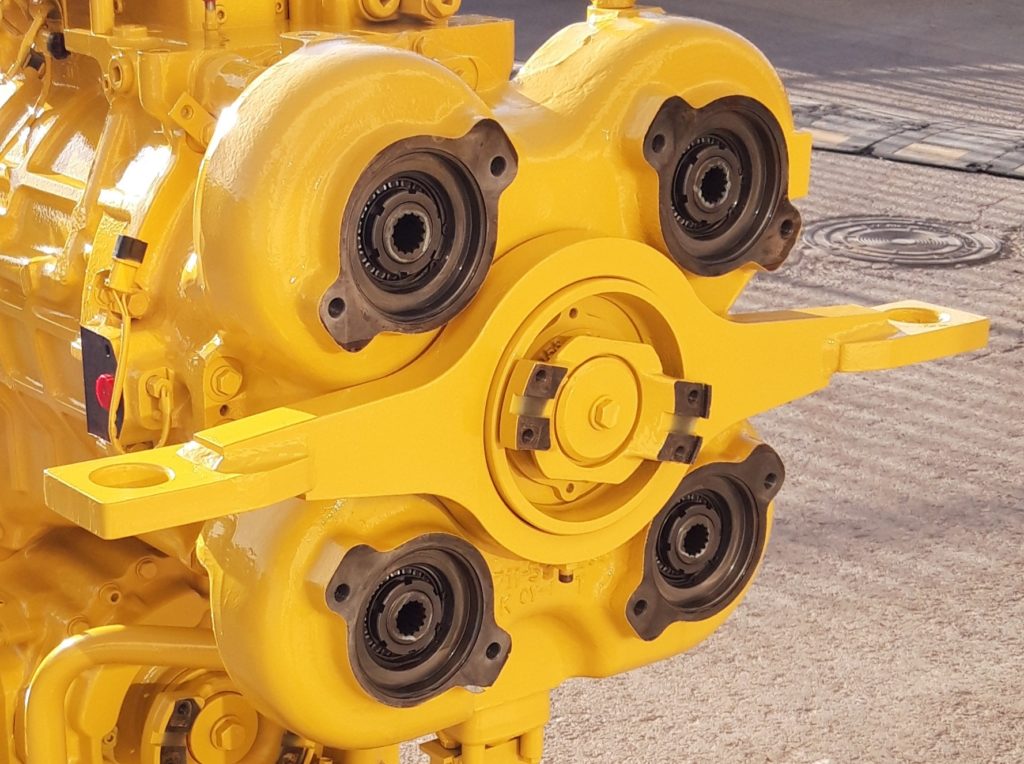
Gearbox (Powershift)
The gearbox, or powershift transmission, enables control of speeds and gear changes in the wheel loader. The distinctive feature of a powershift transmission is its ability to shift gears seamlessly, ensuring a smooth transition without power loss. It also allows the operator to adapt the machine, such as a wheel loader, to different load and terrain conditions, optimizing efficiency and performance in various tasks.
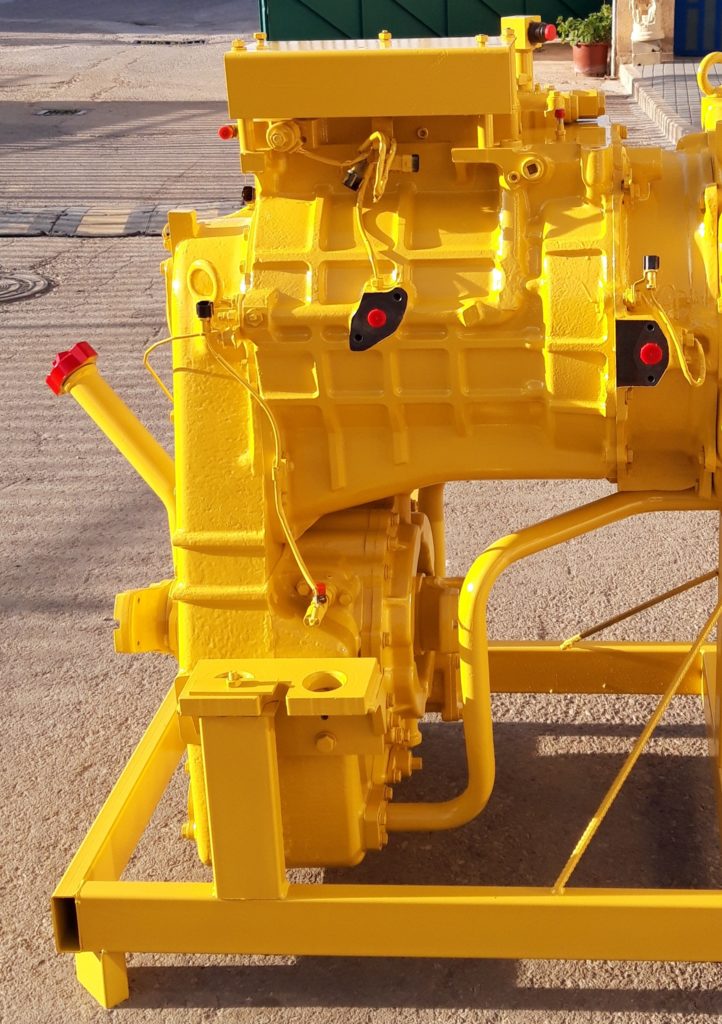
Axles and Driveshafts
Axles and driveshafts serve as crucial foundations in wheel loaders, playing an essential role in transferring the power generated by the engine to the wheels. Axles, designed to withstand loads and torsion, are responsible for maintaining precise wheel alignment and ensuring reliable traction on diverse terrains. Driveshafts, on the other hand, act as vital intermediaries by seamlessly transmitting motion from the gearbox to the axles.
The synergy between these components is fundamental for the optimal performance of the wheel loader, especially in construction, mining, and earthmoving environments.
Keeping them in optimal condition is a priority to ensure the reliability and efficiency of the machine throughout its lifecycle.
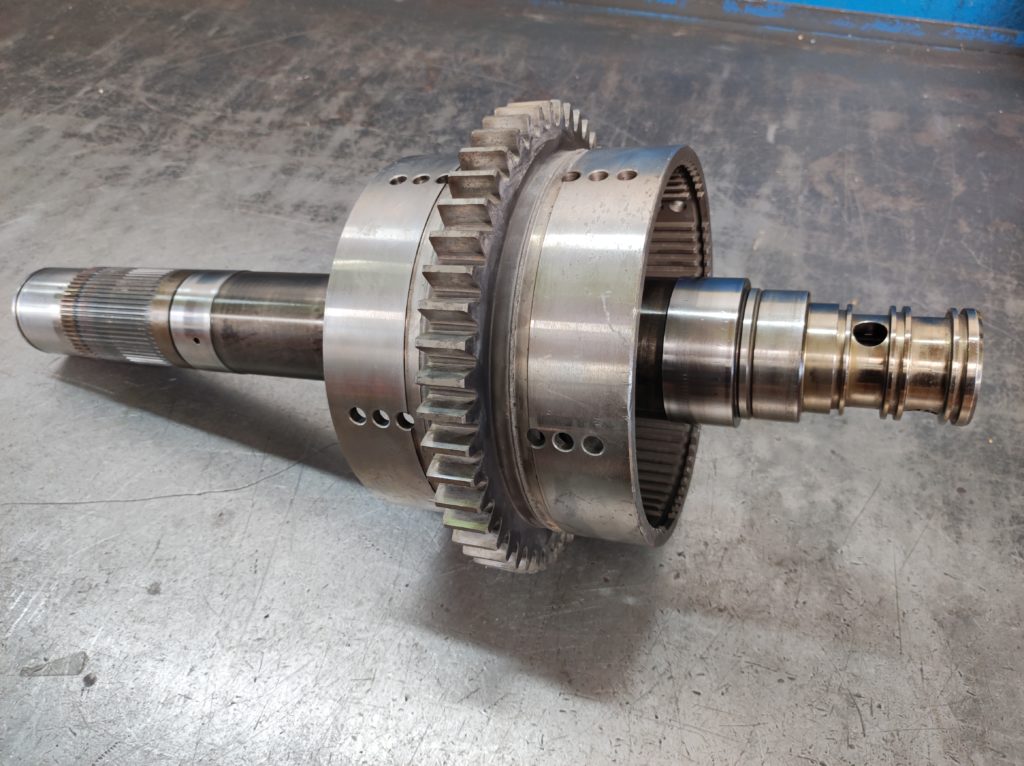
Fluids and Lubrication
In the past, powershift transmissions used to rely on engine oil, which was not an optimal choice due to differences in composition and performance required by transmissions. Compared to specialized oils, engine oils could lead to wear and friction issues in components such as clutches and brakes. Changes in fluid technologies and design have given rise to advanced oils that enhance performance and durability.
These modern lubricants fulfill several vital functions, including ensuring friction stability, anti-wear protection, and material compatibility. They also provide control over sludge, protection against rust and corrosion, and thermal stability.
You can choose between single-grade or multigrade oils, depending on the climate and requirements. As the industry evolves, oils will continue to adapt to new engines and emission requirements, remaining essential in maximizing the efficiency and longevity of heavy machinery.
Typology
In the realm of wheel loaders and most heavy machinery, we encounter a variety of transmission types, each designed to meet specific needs and situations:
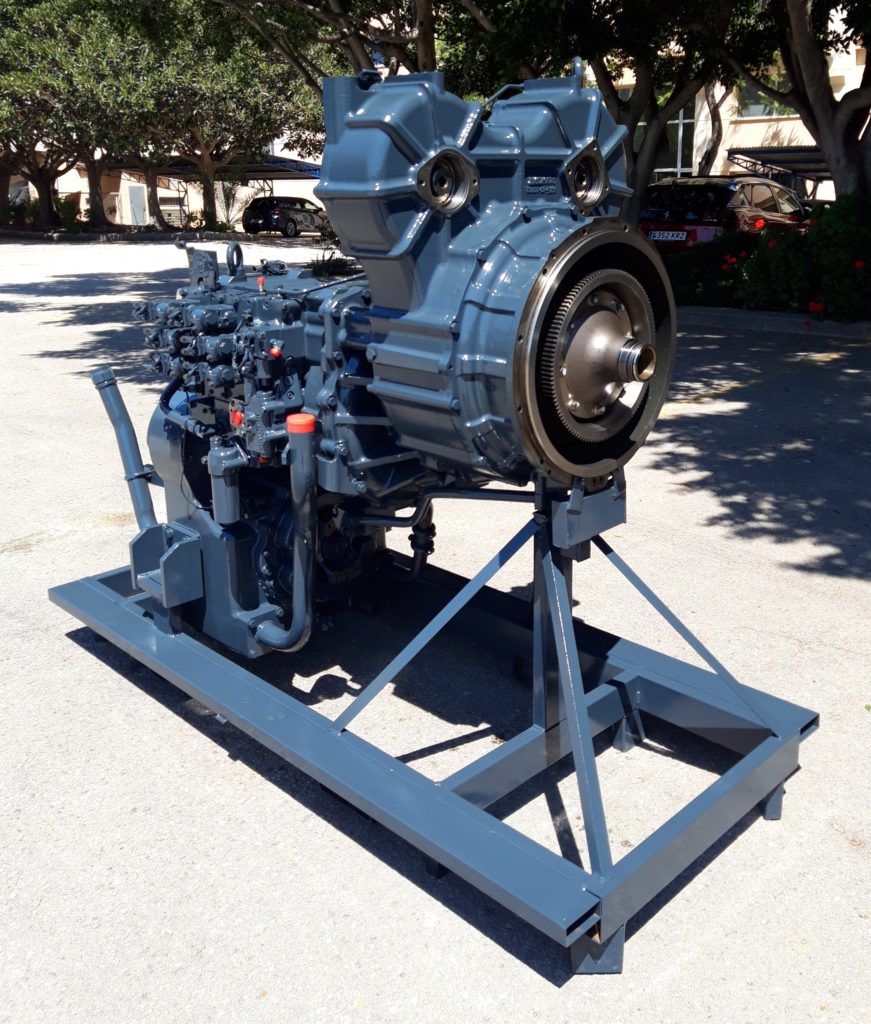
- Powershift: Renowned for its seamless gear shifts, allowing the machine to maintain its momentum and efficiency while changing speeds. Extremely useful in situations of constant load or on uneven terrains. The smooth transition between gears optimizes operation in various conditions, providing greater traction and reducing clutch wear. In construction and mining environments where power and durability are essential, they have proven to be an effective choice.
- Hydrostatic: Hydrostatic transmissions employ hydraulic fluids to transmit engine power to the wheels or tracks. This technology offers precise control and smooth maneuverability, making it particularly valuable for operations requiring precise movements and maneuvers in tight spaces. The ability to vary speed and direction smoothly and continuously makes hydrostatic transmissions ideal for accurately loading and unloading materials in congested work areas.
- Automatic: Automatic transmissions, known for their comfort and ease of use in passenger vehicles, have also been adapted for heavy machinery, including wheel loaders. These transmissions automatically shift gears based on load conditions and machine speed, allowing operators to focus on other critical tasks. Efficiency and the smoothness of gear transitions are standout features of this transmission type, resulting in a more comfortable and productive operation.
Recycling and Sustainability
The recycling of used transmission components plays an essential role in reducing environmental impact and promoting sustainability in the industry. Firstly, recycling helps minimize the accumulation of electronic and metallic waste, reducing pressure on landfills and preventing soil and water pollution. By salvaging and reusing parts from decommissioned transmissions, the need to extract and process new raw materials is decreased, contributing to the conservation of natural resources.
Additionally, it can have a positive impact on the economy by fostering job creation in the recycling and refurbishment industry. Workshops and specialized companies in parts recovery can repair and refurbish used components, extending their lifespan and offering them at a more affordable cost compared to entirely new parts. This benefits both heavy machinery operators and fleet owners by reducing maintenance and replacement costs.
Lastly, it contributes to a circular economy mindset in the industry, where products and materials are reused and recycled instead of being discarded after their initial lifespan. This not only reduces the industry’s environmental footprint but also promotes greater awareness of the importance of resource conservation and environmental responsibility in a critical sector for construction and infrastructure.
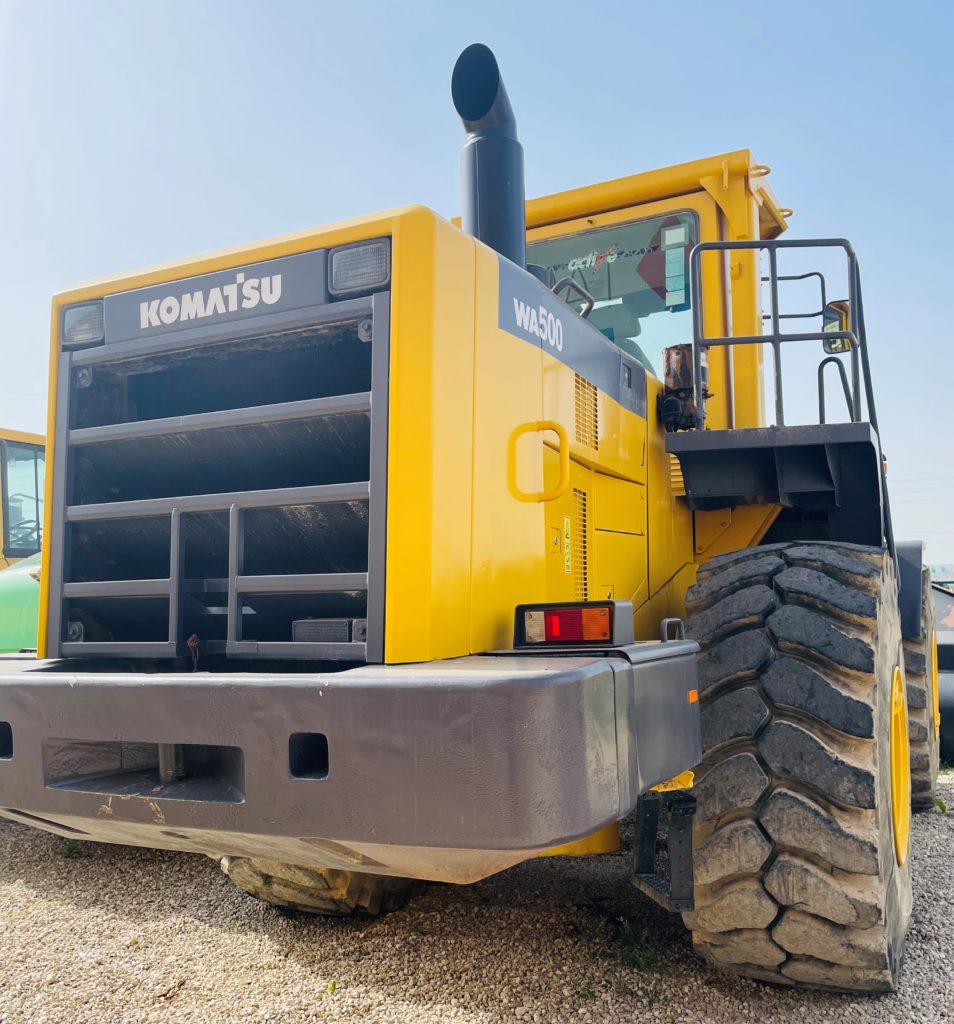
In TAOP PARTS, we can provide the necessary spare parts for your machine, including transmissions and their components. Feel free to contact us for inquiries and assistance.
www.TaopParts.com
info@taopparts.com
